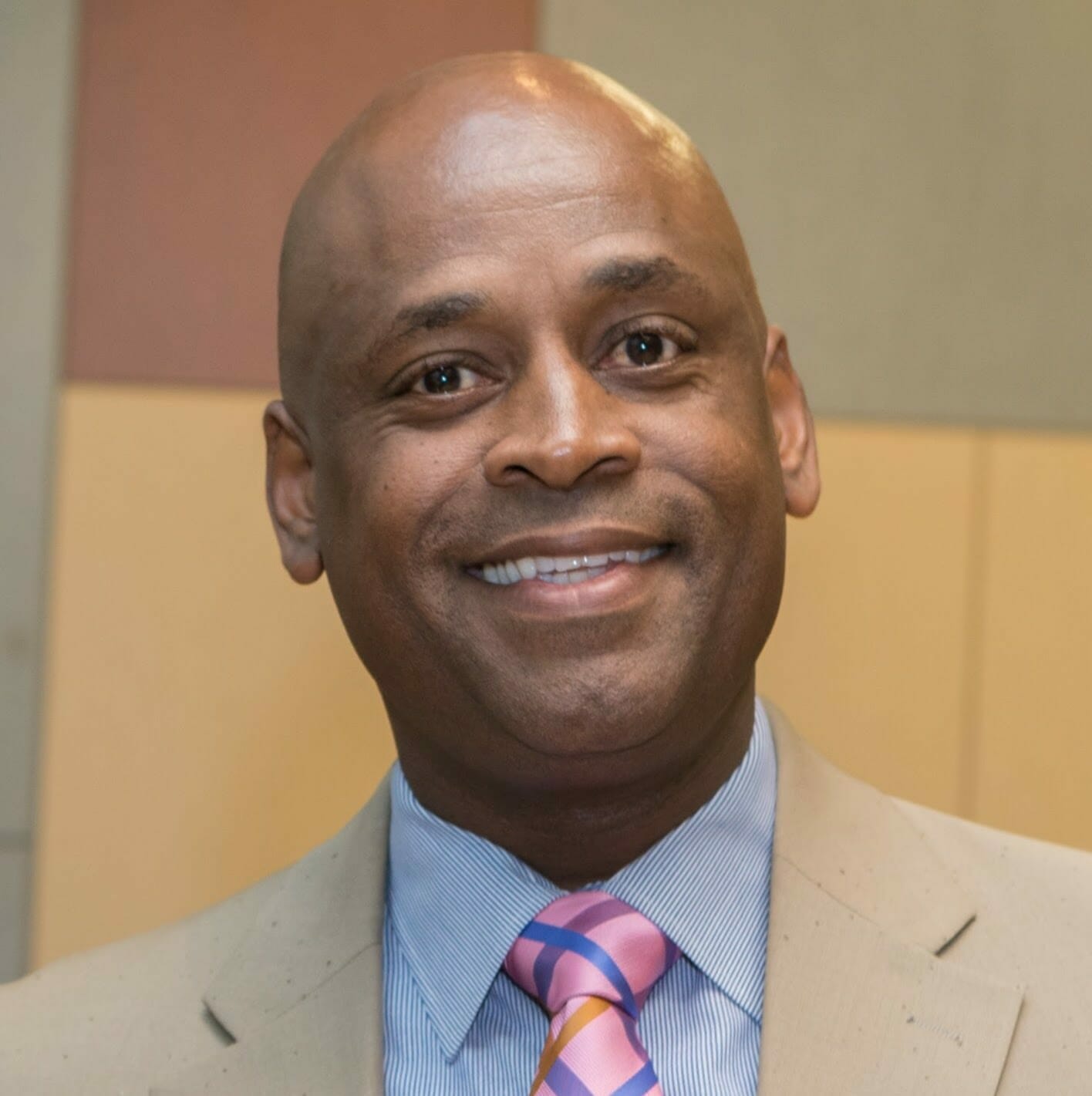
In this series, we’ve talked about how the chief of staff can operate as an effective liaison, what qualities presidents desire in the chief of staff, and where new chiefs of staff could look for resources. Now, in our sixth article, we want to ask: What are key skills that chiefs of staff need to build in order to best handle crises on campus?
In this series of articles, experienced chiefs of staff offer critical advice on managing the chief of staff role. We will share their answers to questions such as these:
- How do you make yourself available as a liaison to faculty without appearing as a gatekeeper for the president?
- What words of wisdom would you want to offer to a chief of staff who has been in the role for a while?
- We know the chief of staff position can feel isolating at times. Thinking back, what were some of the most helpful resources to you in getting up to speed?
- When considering hiring a chief of staff, what are some absolutely crucial competencies or traits that presidents look for in a candidate?
- What does a new chief of staff most need to know, and which relationships do you need to build from the first day of your job as chief of staff?
- What are key skills that chiefs of staff need to build in order to best handle crises on campus?
- What are one to two key steps chiefs of staff must take in order to best serve their institution during presidential transitions?
Contributors to this series include:
- Max Allen, Vice President and Chief of Staff, Clemson University
- Nate Bryant, Chief of Staff, Salem State University
- Brittany Williams-Goldstein, Chief of Staff, Ramapo College
- Tom Hennessey, Chief of Staff Emeritus, George Mason University
- Josh Jacobs, Vice President for Advancement, Marietta College
- Chris Romano, Vice President of Student Affairs and Enrollment Management, Ramapo College
- Karen Whitney, President Emeritus, Clarion University
- Wendy Wilson, Vice President of University Relations/Chief of Staff, Albany State University
We hope you will enjoy the series and share each article with your peers. If you find these articles useful, please consider attending and learning from these and other experts at these virtual trainings:
- Managing Presidential Transitions as Chief of Staff | Webcast Recording
- A Process-Oriented Approach to Working with Your Board and President as Chief of Staff | Webcast Recording
Today, here is the sixth installment in our series:
6. What Skills Does the Chief of Staff Need in a Crisis?
Academic Impressions. What are key skills that chiefs of staff need to build in order to best handle crises on campus?
 Chris Romano, Ramapo College. Here are 3 skills that are essential for chiefs of staff to have in order to best handle crises on campus:
Chris Romano, Ramapo College. Here are 3 skills that are essential for chiefs of staff to have in order to best handle crises on campus:
1) Relationship management and here I mean both internal and external relationships. Externally, relationships with law enforcement and the media are essential. When crises arise, having the relationship with the Chief of Police or the news editor is important so that open communication can occur. In today’s clickbait world, where media are driven to “post first” and fact-check second, having that trust with key stakeholders enables a relationship to exist where coverage isn’t surprising or inaccurate.
2) Discipline: The biggest challenge in crises, in my opinion, is that too many people on campus want to help, and they actually clutter the process. That’s because colleges are “people” organizations, and at our core is a desire to support people. But, the most damaging thing can sometimes be when too many individuals, including board members, want to overstep their roles in an effort to be helpful. As chief of staff, it is important to bring a discipline to the crisis and to emergency plans. This means regularly reviewing who is responsible for what—and how those “trees” work. So, if the VP of Student Affairs is called by the president, do they know who they are supposed to call next? And then do those individuals know what they need to do next? Crisis communication is not the time for questions, it’s the time for action. So, reviewing communication and decision trees as well as the role of the cabinet and other senior staff should be at least a semesterly activity. And discipline needs to extend beyond a written document; have folks verbally talk through their roles without a document to read. The crisis could potentially happen at 3 a.m., and no one is going to pull up their 85 plan in the middle of the night. Similarly, if the COS is responsible for board liaising, it’s important that the board be educated on the difference in their role vs the administration’s role. The board chair might be one of the first people to know something occurred, but that could be followed by longer periods of silence as the administration executes its emergency plan and takes its important steps.
3) Patience—thinking before writing. In crises, there is the push to communicate fast. But accurate is equally important. And the reality is that while the COS may be the point person for many of the communication points, there are other people on campus who are in the heat of the moment responding to the crisis (public safety, facilities, student affairs, etc.). While there is a desire to know as much as quickly as possible, those folks also need the time to get the facts and communicate the appropriate responses. The speed of social media means that a wrong comment or update can live forever, so while there is a need for speed, there is more of a need for accuracy. This doesn’t mean that updates can’t occur, but it’s okay to have an update that says Crisis on campus…more information to come shortly. When crises occur, it’s typical that everyone wants to hear from the president and wants updates (including the board, donors, faculty, staff, students, parents, etc.). Making sure that the institution speaks in one unified voice is an essential crisis strategy.
 Karen Whitney, President Emeritus, Clarion University. As a chief of staff handing a crisis on campus, you are working in tandem with the CEO and with the university executive team in order to respond in a way that serves the university community very well. The top skills needed to fulfill this very important role include: Crisis Response—Planning; Preparation; Timely & Timed Responses; and Recovery.
Karen Whitney, President Emeritus, Clarion University. As a chief of staff handing a crisis on campus, you are working in tandem with the CEO and with the university executive team in order to respond in a way that serves the university community very well. The top skills needed to fulfill this very important role include: Crisis Response—Planning; Preparation; Timely & Timed Responses; and Recovery.
As the chief of staff, you are entrusted with ensuring the success of the university through the success of the CEO. As such you must ensure that these best practice elements of crisis management (planning, preparation, response and recovery) occur and that there is clarity and accountability related to the roles and responsibilities of the CEO, you, and the executive team that reports to the CEO. It is best that there be clarity and accountability before a crisis occurs.
Your opportunity is to be “that hub” that connects all the moving parts, ensuring that the office of the CEO provides best practice leadership during a difficult time. As such, key additional skills the chief of staff needs to have include: communication, conflict-resolution, problem-solving, quick-judgement, relationship-building, and confidence.
 Max Allen, Clemson University. The best approach for a successful chief of staff during any crises on campus is to be a calming force. You should have good listening skills, and calmly assess the situation while providing appropriate leadership and advice to the President/Chancellor or other decision makers.
Max Allen, Clemson University. The best approach for a successful chief of staff during any crises on campus is to be a calming force. You should have good listening skills, and calmly assess the situation while providing appropriate leadership and advice to the President/Chancellor or other decision makers.
Sometimes there may be a need for difficult conversations and perhaps disagreements. However, plan to be that trusted and calm soul that your boss and others can rely on for advice when crises occur.
 Nate Bryant, Salem State University.
Nate Bryant, Salem State University.
1) Exhibiting a sense of calm is important. Often, chiefs of staff will be counted on to take the lead in addressing the crisis. Your reaction can be infectious, and while you may be anxious internally, you need to remain composed externally.
2) As a chief of staff, it is important to be familiar with those individuals on your campus who may be called on to assist with the crisis (see point number 4, below). No one individual can resolve a crisis, so building good relationships with colleagues can go a long way in managing crises.
3) Staying current on the trends in higher education can also go a long way in identifying the potential for a crisis and being prepared. While you cannot predict if and when a crisis will occur, you can be well-versed in knowing some of the types of crises that are surfacing on college campuses, and you can alert your crisis and communication team.
4) Create a crisis and communication plan. While crises may differ in their significance, having a crisis and communication plan helps to keep you focused and organized.
5) Conduct after action reviews to address and correct any shortfalls.
 Wendy Wilson, Albany State University.
Wendy Wilson, Albany State University.
1) Strategize, plan and execute: What you do most, is what you do best. As Chief of Staff, is it important to position yourself to regularly engage in projects that entail strategizing, planning, and executing. Lead or serve on a committee or task force that creates opportunities to hone and develop plan design, development, and implementation. If your institution does not have a current crisis management plan in place, take the lead in its design. If one has been designed and approved, regularly assess and convene key stakeholders for periodic review and updates. This will aid in affirming your reputation and your ability to either lead, support, or both in times of crisis.
2) Professional and calm demeanor: One of the core tenets of being an effective and successful chief of staff is the mastery of maintaining professional and calm demeanor, regardless of the circumstance. In times of crisis, both professionalism and calm should be viewed as functions, as opposed to traits, and should be exercised as such throughout the crisis timeline.
3) Healthy and trusted relationships: Established, healthy, and trusted relationships with essential institutional constituencies (internal and external) are critical to crisis management efforts. It’s imperative that the chief of staff and department leads have a fluid understanding of how respective areas and operations influence successful navigation of the crisis. A respected bond and support with campus safety, housing and residence life, facilities, fiscal, health and wellness, and communications representatives should be developed and maintained prior to and throughout the crisis.
4) Effective communicator: One’s ability to effectively communicate will surely be tested and critically assessed during times of crisis. How plans and messages are written, spoken and disseminated can significantly affect the overall safety of impacted parties, the overall outcomes, and the leadership and institutional brand.
 Brittany Williams-Goldstein, Ramapo College. One quality and one skill that I believe are integral to any leadership position and that are perhaps most fitting for a chief of staff (in any industry) are that the individual has to have 1) a high tolerance for ambiguity, and 2) a mastery of cogency when communicating. Such tolerance and cogency serve the chief of staff well throughout her work with various audiences, when leading various projects, when acting at times on behalf of others, and when managing crises.
Brittany Williams-Goldstein, Ramapo College. One quality and one skill that I believe are integral to any leadership position and that are perhaps most fitting for a chief of staff (in any industry) are that the individual has to have 1) a high tolerance for ambiguity, and 2) a mastery of cogency when communicating. Such tolerance and cogency serve the chief of staff well throughout her work with various audiences, when leading various projects, when acting at times on behalf of others, and when managing crises.
First, during a crisis in particular, a tolerance for ambiguity fosters the chief of staff’s ability to maintain a calm but understandably concerned disposition. The chief of staff accepts that confusion will emerge in any crisis and, in my experiences, this acceptance helps mitigate the individual’s innate desire to hasten established protocols or to engage in other well-meaning but inefficient fronts that fall outside of crisis protocols.
Second, any crisis can bring with it the unbelievable, and communities turn to leaders to help them make sense of nonsensical things. In these situations, as well as in situations when answers are just not readily available, it is absolutely essential that all communication by the chief of staff (both formal and informal) is cogent. Cogent communication is marked by clear, logical, simple language that, in its brevity and forthrightness, is compelling. The chief of staff’s capacity to communicate cogently during a crisis can engender trust, advance sensemaking, and mitigate greater confusion.
Learn More
Enjoyed this series? Sign up for our newsletter to get articles like these delivered right to your inbox.
If you find these articles useful, please consider attending and learning from these and other experts at these virtual trainings:
- Managing Presidential Transitions as Chief of Staff | Webcast Recording
- A Process-Oriented Approach to Working with Your Board and President as Chief of Staff | Webcast Recording
If you’d like to join a cohort of chiefs of staff and chief strategy officers to delve into the issues impacting higher education, join us in Denver for Driving Institutional Strategy as a Chief Strategist or Chief of Staff, taking place July 28 – July 29, 2025.

